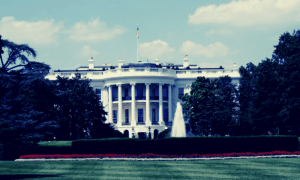Regulatory overview – BTC ban in the EU off the table, at least for the time being
3 min readTable of Contents
EU votes against BTC ban for now
On March 14th, European hodlers had to take another deep breath. Because contrary to expectations, the ban on services based on the proof-of-work mechanism did not disappear from the MiCA draft. Only a narrow majority of 32 versus 24 committee members was able to avert a Europe-wide de facto ban on BTC. The draft for the European crypto regulations is now up for a vote in parliament without the paragraph in question. The vote was preceded by several weeks of discussion about the ecological impact of BTC and Co. The matter has not been completely settled in the meantime, because it is at least conceivable that the Greens, Left and Social Democrats will decide to block the parliamentary vote. Then the struggle for possible changes to the draft would start all over again, but the introduction of MiCA would be postponed as a result. With unpleasant consequences for Europe’s crypto industry.
US senator fears BTC loopholes for Russia
This week, too, the Ukraine war did not let go of the world. As Western sanctions began to take effect, the debate over cryptocurrencies as a vehicle for sanctions evasion intensified in the US. At a US Senate hearing on March 17, Democratic Senator Elisabeth Warren introduced a bill aimed at plugging any loopholes. The law would not only allow the US government to prevent transactions from domestic BTC exchanges with Russian wallets. Measures against foreign services that help Russia in crypto space to circumvent sanctions would also be possible. Finally, the law also provides for a reporting obligation for transactions with offshore companies in the amount of more than 10,000 US dollars. Not least because of this, it does not meet with much approval in crypto circles. Experts also assume that Russia’s crypto opportunities are not particularly pronounced in the current situation anyway. More crypto news about the Ukraine war can also be found in the live ticker from BTC-ECHO.
Criticism of SEC boss Gensler
Apart from the sanctions debate, the official handling of BTC and Co. in the USA was also an issue last week. Because seven congressmen from both parties turned in an open letter to Gary Gensler, the head of the US Securities and Exchange Commission. In it, you urge him to reconsider the types of information requests the SEC makes on crypto service providers. The letter also contains a series of questions regarding the SEC’s information policy. Gensler has until April 29 to respond. Republican Tom Emmer, one of the signers of the letter, explained in another tweet that he had received “numerous leads from crypto and blockchain companies” that SEC inquiries to crypto firms were “overwhelming.” Ripple was able to achieve partial success in the legal dispute with the SEC last week.
Kazakhstan continues fight against illegal BTC mining
The Kazakh authorities also took action against the unlicensed mining of BTC in the past week. They have since seized more than $200 million worth of mining equipment. According to the national financial market supervisory authority, 55 companies had voluntarily stopped their activities. In the aftermath of the Chinese mining ban, Kazakhstan has blossomed into a Mecca for the mining industry. Since then, the country has been struggling with energy shortages. The government is trying to tie mining into a legally compliant framework. Illegal activities, on the other hand, are combated.
Edward Snowden warns against CBDCs
Whistleblower Edward Snowden once again spoke out against central bank digital currencies (CBDCs). In an interview with Marta Belcher, President of the Filecoin Foundation, Snowden underlined his rejection of the centralized and state-owned counterpart to BTC and Co. “The danger is very easy to recognize,” said Snowden, who is primarily concerned with the potential danger to financial independence the citizens stressed. Finally, CBDCs are digital, making them far easier to monitor and confiscate than cash. For Snowden, we must not lose sight of the fact that CBDCs are giving governments the ability to “take our money out of our wallets at the push of a button.”






